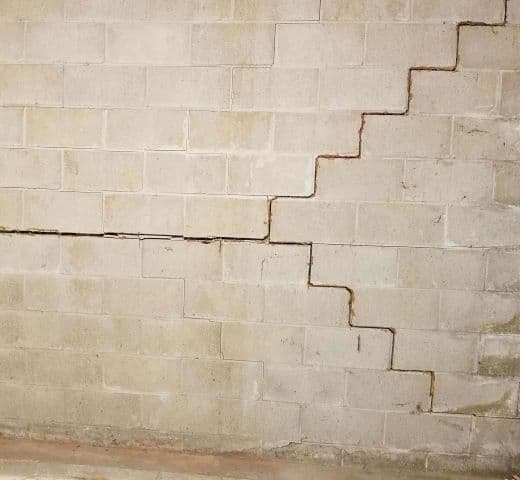Top 3 ways you can keep your basement moisture-free
Toronto’s diverse climate poses unique challenges for homeowners, especially concerning cellar maintenance. To safeguard your home’s structural integrity, addressing issues like crack repair, concrete crack repair, foundation crack repair, and overall cellar maintenance is crucial. We will delve into the top three ways to keep your Toronto basement moisture-free, emphasizing the importance of professional services like cellar crack repair contractors.
- Thorough Inspection and Comprehensive Basement Crack Repair:
A meticulous inspection routine is the foundation of any successful cellar moisture prevention strategy. Regularly scrutinizing your cellar for cracks in walls and floors is essential.
Concrete crack repair and fixing base cracks should be prioritized to prevent water infiltration, as even minor breaches can escalate into significant issues.
When it comes to cellar crack repair, seeking the assistance of a seasoned professional is invaluable. A reputable ground crack repair contractor in Toronto possesses the expertise to assess the damage accurately and provide tailored solutions. Their services ensure a resilient and long-lasting fix, from foundation crack repair to comprehensively addressing cellar flaws.
- Investing in Proactive Basement Waterproofing Services:
A proactive approach to cellar maintenance involves investing in professional waterproofing services. A dependable cellar crack repair company in Toronto offers various solutions, including cellar crack treatment and repairing base fractures. These services establish a robust barrier against water intrusion, shielding your cellar from potential damage.
Waterproofing entails the application of specialized materials and techniques to seal existing fractures and prevent new ones from forming. Depending on your basement’s specific needs, this process may involve exterior waterproofing, interior waterproofing, or a combination of both. Entrusting this task to a skilled cellar crack repair contractor guarantees that the waterproofing is executed correctly, providing enduring protection against moisture. Whether repairing or fixing a cracked foundation, timely intervention by professionals is crucial to avoid the escalation of problems and safeguard the structural soundness of the entire home.
- Proactive Maintenance: How to Fix Cracks in Basement and More:
Prevention is the linchpin of cellar maintenance. Regular upkeep and proactive measures like fixing cellar fractures are imperative in averting potential issues. Discover how to repair foundation cracks effectively with expert guidance and proven techniques.
Here’s a detailed breakdown of proactive steps:
a. Monitoring and Redirecting Water: Assess the grading slope around your residence to confirm that water drains away from the ground. Installing downspout extensions can divert water 6 feet away from the house.
b. Gutter Maintenance: Regularly clean gutters to prevent clogs that may lead to overflow and subsequent water seepage into the basement.
Maintaining proper gutter systems and redirecting water away from the base are pivotal actions to keep your cellar moisture-free.
c. Sealing Gaps and Cracks: Conduct a thorough examination of the exterior for any gaps or fractures and promptly seal them. This extra layer of defense minimizes the risk of water infiltration.
d. Installing Sump Pump: Isntall Sump Pump as this device prevents flooding by expelling excess water and directing it away from your home.
e. Interior Moisture Control:
Consider purchasing a dehumidifier to control indoor humidity levels, thereby minimizing the chances of mold growth and other moisture-related problems.
f. Professional Inspection: Schedule periodic inspections by a cellar crack repair contractor to identify and address potential issues before they escalate.
Foundation cracks can be a severe problem, potentially leading to significant structural issues if not addressed promptly and appropriately.
Early Indicators of cellar Moisture Problems
As a homeowner in Toronto, staying ahead of potential cellar moisture issues is crucial for preserving the integrity of your property. Overlooking subtle indications may result in additional problems, including mold development and structural damage. Fixing cellar fractures is a crucial step in preventing potential moisture issues.
Understanding when to worry about cracks in the basement floor becomes essential as it guides homeowners in determining the appropriate timing for necessary inspections and repairs.
Ensuring effective grading around your home to prevent water pooling and consistently sealing any visible fractures contribute significantly to keeping your ground moisture-free.
This guide will explore the early indicators of cellar moisture problems and empower you to take proactive measures like ground crack repair, concrete crack repair, fixing base fractures, and others.
- Unexplained Musty Odors:
An unexplained musty odor is one of the earliest signs of cellar moisture. Addressing this issue promptly with basement crack repair can prevent further complications.
- Visible Mold or Mildew:
Mold and mildew thrive in damp environments. When you notice apparent mold growth on the walls, ceilings, or around windows in your basement, it’s crucial to respond promptly. Professional cellar crack repair services can eliminate the source to keep your ground moisture-free and prevent mold from spreading.
- Efflorescence on Walls:
Efflorescence, the white, powdery substance on floors, walls, indicates water penetration. It happens when water evaporates, leaving mineral deposits behind. Identifying and repairing ground flaws can stop the water source, preventing efflorescence from reoccurring.
- Peeling Paint or Wallpaper:
Moisture leads to paint or wallpaper peeling away from the walls. If you notice bubbling, cracking, or peeling in your basement, it’s a sign that moisture is affecting the structural integrity. Effective basement crack repair and waterproofing solutions can address this issue.
- Warping or Buckling of cellar Floors:
Changes in the structure of your Ground floors, such as warping or buckling, suggest prolonged exposure to moisture. Fixing ground flaws and implementing comprehensive basement waterproofing measures, including specialized treatments and sealants, can stabilize the foundation and prevent further damage.
- Rusty Metal Appliances or Furnishings:
The moisture in the cellar results in the corrosion of metal appliances, furnaces, or any metallic components in the surrounding area. Regular inspections and ground crack repair can mitigate the risks associated with rust and corrosion.
- Visible Water Stains:
Water stains on walls clearly signal water seepage. Identifying and fixing ground flaws promptly is essential to prevent water stains from spreading and causing more damage.
- Insect Infestations:
Moist environments attract insects, and a damp cellar can become a breeding ground for pests. Addressing ground flaws and implementing waterproofing measures prevents moisture issues and helps in pest control.
- High Humidity Levels:
Hygrometer is a good investment for humidity levels in your basement. Elevated humidity can contribute to moisture problems. Implementing dehumidifiers and addressing cellar flaws can help maintain optimal humidity levels.
- Cracks in Foundation Walls or Floors:
The most critical early indicator is the presence of flaws in base, walls or floors. Regular inspections for cellar crack repair and fixing ground flaws are paramount in preventing water intrusion and subsequent damage. Promptly addressing foundation crack repair is essential to maintain the integrity of your home.
Empowered with the knowledge of these early indicators, Toronto homeowners can take proactive measures to address ground moisture issues before they escalate. Whether through DIY methods or seeking the expertise of a professional ground crack repair contractor, being vigilant ensures a dry and secure cellar for years to come.
| Criteria | Thorough Inspection and Comprehensive cellar Crack Repair | Investing in Proactive ground Waterproofing Services | Proactive Maintenance: Fixing flaws in cellar and More |
| Importance | The foundation of a successful moisture prevention strategy | Establishes a robust barrier against water intrusion | Averts potential issues through proactive measures |
| Key Actions | Regular scrutiny for flaws in walls and floors | Application of specialized materials and techniques | Monitoring, redirecting water, gutter maintenance, sealing gaps, sump pump installation, interior moisture control, professional inspection |
| Professional Involvement | Highly advisable for accurate assessment and solutions | Essential for specialized waterproofing techniques | It may involve professional inspection for comprehensive assessment |
| Key Benefit | Resilient and long-lasting fix for identified issues | Robust barrier against water intrusion | Averts potential issues through proactive measures |
| Focus Areas for Action | ground crack repair, concrete crack repair, fixing ground flaws | ground crack treatment, repairing foundation breaches | Fixing cellar cracks, monitoring and redirecting water, gutter maintenance, sealing gaps, sump pump installation, interior moisture control, professional inspection |
| Preventive Measures | Fixing identified issues like breaches in walls and floors | Application of waterproofing techniques and materials | Proactive measures to prevent issues, including monitoring, sealing, and installations |
| Frequency of Action | Regular inspections at least twice a year | As part of an aggressive maintenance plan | Ongoing proactive measures as part of routine maintenance |
| DIY Potential | Limited, professional involvement recommended | Limited, professional involvement recommended | Varies; some measures may be DIY, others require professional assistance |
Conclusion:
In the relentless pursuit of a moisture-free basement, a proactive strategy coupled with professional services is an impenetrable defense. Whether it’s crack repair, concrete crack repair, or comprehensive cellar waterproofing, Toronto homeowners must remain vigilant in preserving their basements. Timely addressing flaws and investing in preventive measures ensures a dry, secure environment for your home. Don’t hesitate to consult a reputable crack repair contractor or company in Toronto to safeguard your investment, providing you with a moisture-free haven for years.
At WaterproofingService.com, we take pride in being Toronto’s leading waterproofing company. With a wealth of experience, unmatched skill, and a dedication to excellence, we specialize in cellar crack repair, concrete crack repair, and fixing flaws. Trust us to navigate Toronto’s unique climate challenges, providing comprehensive solutions to keep your floor secure and dry.
Basement Waterproofing Cost Calculator: https://www.waterproofingservice.com/estimate/
Contact Us: https://www.waterproofingservice.com/contact-us/
FAQs
Q1: How often should I inspect my basement for potential moisture issues?
A: Regular inspections are essential to early detection. You should do a thorough examination twice yearly, focusing on breaches in walls and floors. If you notice any signs of moisture, addressing them promptly is crucial to prevent escalation.
Q2: Can I fix basement cracks independently or hire a professional?
A: While some minor flaws may be addressed with DIY methods, it’s advisable to consult a professional cellar crack repair contractor for a comprehensive assessment. Their expertise ensures accurate identification of the issue and tailored solutions, preventing potential complications.
Q3: What sets professional waterproofing services apart from DIY solutions?
A: Professional waterproofing services, like those offered by WaterproofingService.com, involve specialized materials and techniques that create a robust barrier against water intrusion. DIY solutions may provide temporary relief but need more expertise to address underlying issues comprehensively. Trusting professionals ensures a lasting and effective moisture prevention strategy.













































